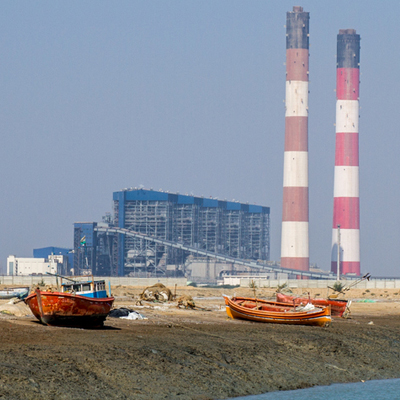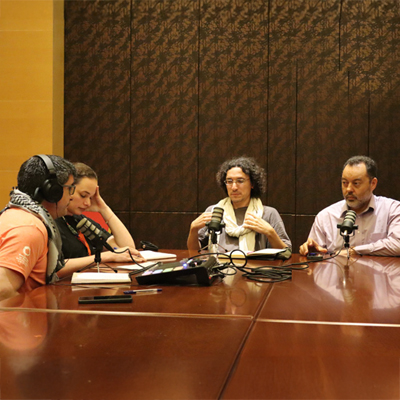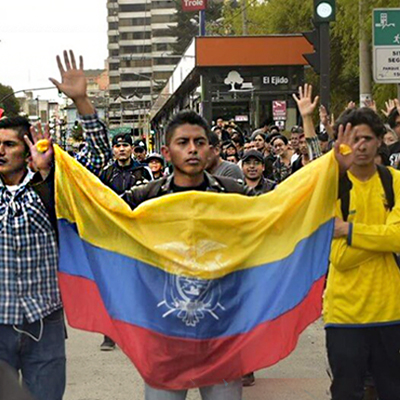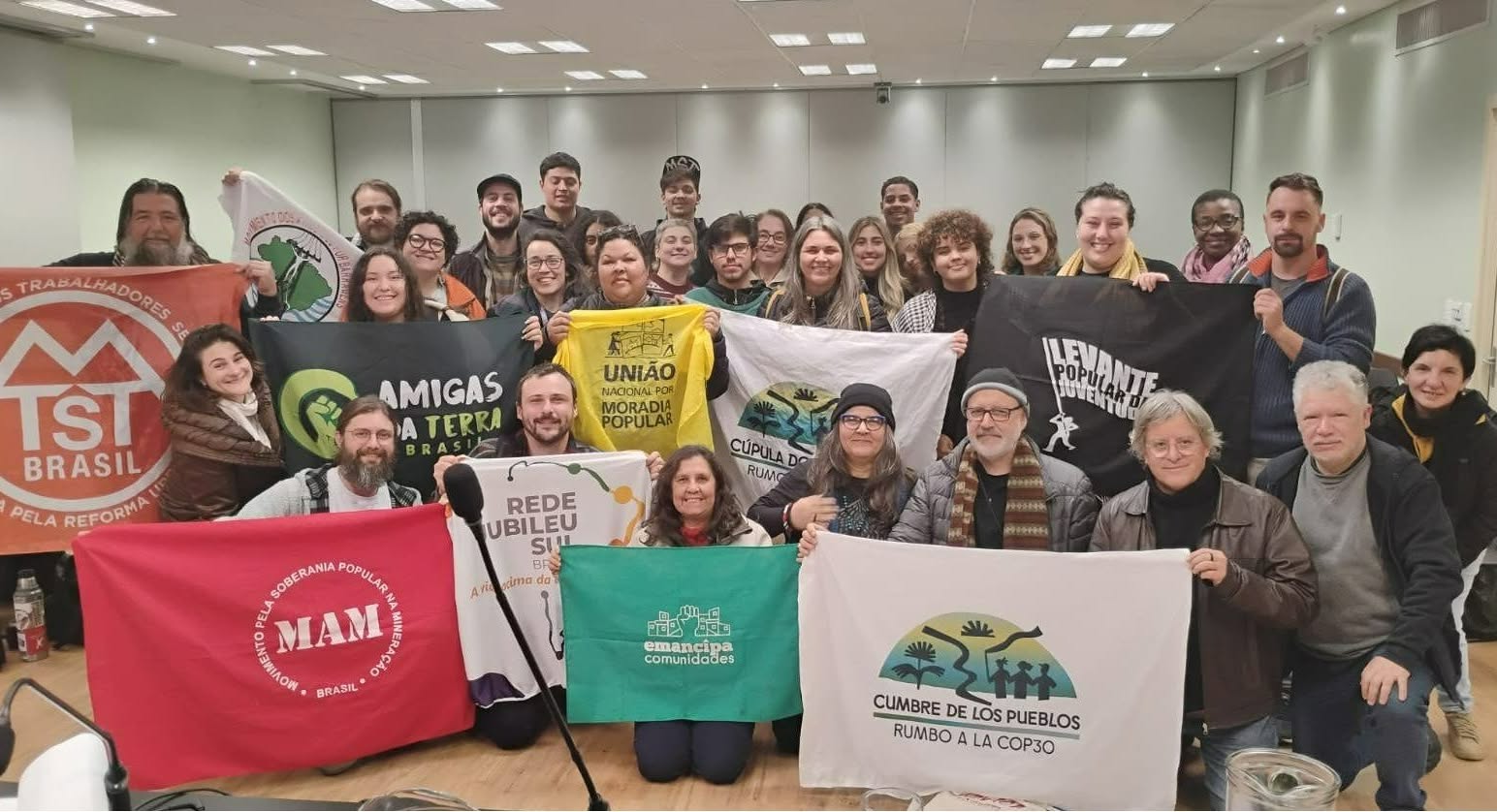United Kingdom: Is this the death of Human Rights?
Interview with Denis Fernando from Friends of the Earth England, Wales and Northern Ireland
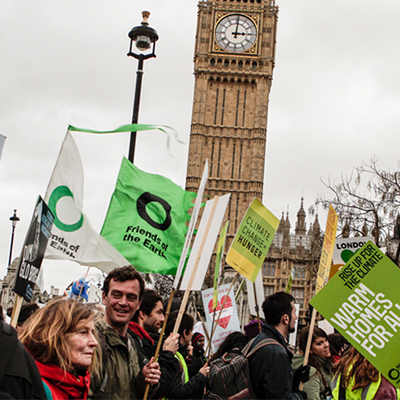 Climate March, London, 2015
Photo: Amelia Collins / Friends of the Earth
Climate March, London, 2015
Photo: Amelia Collins / Friends of the Earth
A series of highly repressive laws and decrees are threatening human rights and freedoms in the United Kingdom. The main concerns of civil society organisations include restrictions to the right to protest, discrimination and repression of ethnic minorities and the dismantling of the Human Rights Act.
Real World Radio interviewed Denis Fernando, Rights and Justice Campaigner at Friends of the Earth England, Wales and Northern Ireland to find out more about the potential impacts of laws such as the Nationalities and Borders Bill, the Elections Act and the Public Order Bill.
Law and order
The social impacts and consequences that the Acts and proposed reforms promoted by the British government could have, if passed, are numerous. The Elections Act “could disenfranchise over two million voters, because voters will now need a photo ID to cast their vote, and certain people don´t have a passport or a photo ID, and many will only find out about this on the day of the vote at the ballot box, when it will be too late,” said Fernando.
The Nationalities and Borders Act “will constrict dual nationals of their British citizenship without notice… and you may have heard of the plan for Rwanda deportation flights, which are inhumane.” The activist told us that the first flight to take asylum seekers to the Eastern African country was stopped after the European Human Rights Court intervened. But this, instead of giving the British government pause for thought, intensified their efforts, and “our current Home Secretary, Suella Braverman, said she dreams of these deportation flights,” explained Fernando.
For the environmental movement in particular and the human rights movement in general, the displacement and eviction of people from their territories is a key element in their struggles. “This is going to be the century of the climate refugee as catastrophic weather events are displacing millions around the world,” highlighted Fernando.
On the Police, Crime, Sentencing and Courts Act, also known as the Policing Act, Denis said that it will strengthen police powers. Further fundamental restrictions on the right to protest are threatened in the Public Order Bill which is currently in Parliament.
The changes that are most concerning in the Public Order Bill are the criminalisation of “lock-on” protests which could even impact people simply linking arms, due to the broad and ambiguous drafting of the legislation text. Another cause for alarm would be the broadening of police powers to stop and search protesters, and the introduction of measures, which would stop certain people from protesting.
Greater fear, diminished democracy
Fear and punishment as a form of social control is increasingly prevalent in the UK as a result of these punitive measures against social and environmental struggles. It is worth mentioning some contemporary British movements that are internationally renowned, such as Just Stop Oil and its interventions against the burning of fossil fuels. From an environmental perspective, Fernando highlighted “We must be very aware that these are going to restrict our ability to raise our voice in this critical decade, at this critical time, with regards to climate change.” He added that “peaceful protest is being shut down, civic participation is being hampered, and these are fundamentals of democracy.”
Denis also referenced to two historical movements that, through their struggles in the streets, built huge positive changes for society, despite the resistance of those in power. The women´s suffragee movement of the mid-19th Century and the movement against apartheid in the 1970s. These movements used “direct action methods, including locking on; they were using the kind of measures that are now in danger of being threatened, and that are being described in terms of terrorism,” regretted the activist.
The Public Order Bill is also a direct attack on the traditional way of life of over 300,000 Romany and traveller communities in the UK. On this specific impact, Romany journalist Jake Bowers explained in a news article, “Part Four of the bill will establish a new offence of criminal trespass with “intent to reside”, with fines of up to £2,500 along with the seizure of homes and imprisonment. It has huge implications for anyone needing to defend and live on land they may not be fortunate enough to technically own.”
Bower´s article continues: “When members of my community, the Romany Gypsy community of Britain, pull onto a piece of land they do not own, we are simply following our way of life as nomads. When we move onto land, we are continuing a journey that started in the Indian sub-continent over 1,000 years ago.”
National resistance and internationalist solidarity
This conservative and draconian escalation in the UK sparked outrage among social organisations, and Friends of the Earth England, Wales and Northern Ireland launched a social media campaign using the hashtag #RIPUKHumanRights and made a call to protect human rights and the right to protest: save your rights to save the planet. This resulted in an internationalist solidarity campaign.
People around the world are watching the UK with deep concern, as laws are being passed there that attack human rights, including the right to protest. Now more than ever, we need to defend these rights, to protect peoples and planet. @GOVUK, listen up❗️ pic.twitter.com/LCXGTpUuLo
— Friends of the Earth International (@FoEint) December 2, 2022
According to Denis Fernando, the UK government had to face criticism at the United Nations Human Rights Council over its decisions “on the right to protest, racial equality, climate change, the Rwanda deportation flights, refugees, migrants and minoritised communities, people with disabilities, and the undermining of the Human Rights Act.” Even the Joint Committee on Human Rights of the UK Parliament has said that a number of the measures contravene articles of the Human Rights Act.
“This went to show how important it was to have voices on the international stage bringing pressure to bear on the UK government, for which we are very grateful,” highlighted the member of Friends of the Earth at the end of the interview.



